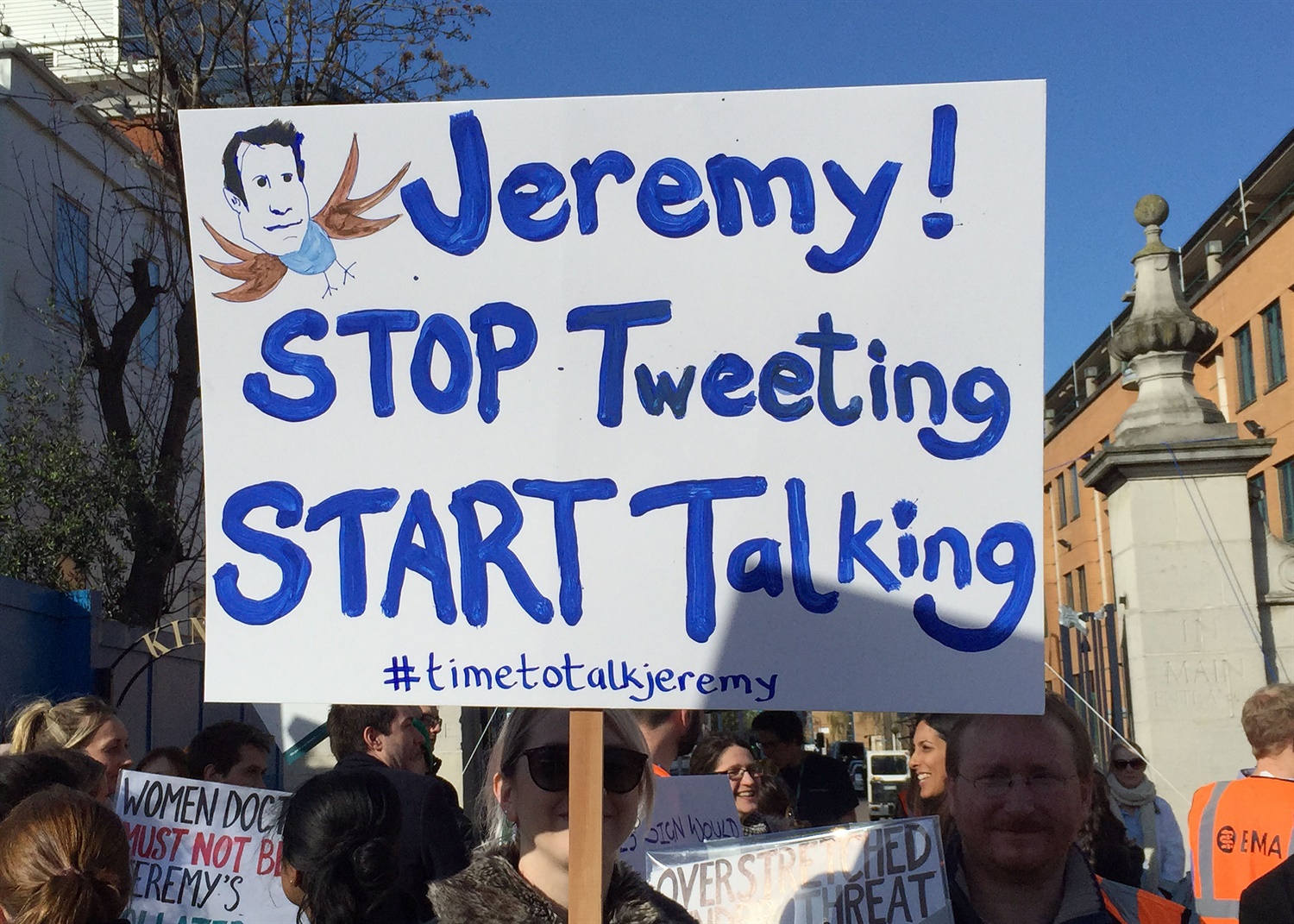26.04.16
Junior doctors begin first all-out strike amid ‘military level’ plans
The first all-out junior doctors’ strike in the history of the NHS has started today across hospitals in England, with thousands of trainees walking out of both routine and emergency care from 8am.
Today’s strike, the first spell in a 48-hour industrial action, is the fifth this year, despite previous ones all providing emergency care cover. A second all-out strike will take place tomorrow (27 April) between the same hours of 8am to 5pm.
NHS England said it has put in place “military level” contingency planning to protect urgent care, including cancelling holidays and study leave, redeploying consultants and middle-grade doctors and nurses into emergency care, keeping more GP appointment free for last-minute requests, increasing NHS 111 staff and postponing almost 13,000 routine operations and over 100,000 appointments.
Dr Anne Rainsberry, national incident director for NHS England, and frequent spokesperson for the junior doctor dispute in the organisation, said: “NHS organisations have tried and tested plans to deal with a range of disruptions to seek to ensure continued safe services for patients, which is always our top priority.
“The NHS has been pulling out all the stops to minimise the risks to the quality and safety of care but this is an unprecedented situation during a time of heightened risk.”
A dedicated website has also gone live offering local strike information and guidance for patients needing treatment.
Despite today’s unprecedented action, no NHS trust has requested that junior doctors return to work as yet, despite being able to do so.
And an Ipsos MORI poll for the BBC indicated the majority of the population still backs junior doctors even with the removal of emergency care. Almost 60% say they support the trainee workforce striking without emergency care provision, against a 26% who are opposed to it.
This is, however, a decrease from an earlier poll in March, where 65% of respondents supported junior doctors striking while still providing emergency cover.
And people’s perception of the dispute, which has lingered between the BMA and the government for over a year but escalated intensely in recent months after talks broke down in January, has also begun to waver. While a majority (54%) still blamed the government for the row, some 35% said both the government and junior doctors were at fault.
Health secretary Jeremy Hunt, who is the target of several of today’s placards across picket lines, described today’s strike as a “very, very bleak day” for the NHS.
Giving a statement to the Commons yesterday, Hunt said the “impact of the next two days will be unprecedented”, but guaranteed that trusts have been working on contingency plans, with “particular focus” on emergency departments, maternity units, cardiac arrest teams and mental health crisis teams.
Hunt’s ‘last big job’ in politics
While healthcare bodies have stepped in to both defend and oppose junior doctors and the government in recent months, the majority have consistently called for further negotiations between Hunt and the BMA.
 A picket line outside Bristol Royal Infirmary c. Ben Birchall, PA Wire
A picket line outside Bristol Royal Infirmary c. Ben Birchall, PA Wire
And in recent days, a cross-party coalition of MPs wrote to the health secretary proposing that the contract is piloted on a number of sites before being introduced nationwide – alongside conducting an audit of mortality cases to find out if the government’s defence of a ‘seven-day NHS’ to reduce the ‘weekend effect’ on avoidable deaths is in fact true.
The long-standing dispute has also resulted in several legal threats and ‘no confidence vote’ petitions to squeeze out Hunt from his post. While the latter did not materialise, the health secretary announced this morning that this will likely be his “last big job in politics”.
He added that health secretaries “are never popular”, arguing: “You’re never going to win a contest for being the most liked person when you do this job but what history judges is did you take the tough and difficult decisions that enabled the NHS to deliver high quality care for patients.”
At the moment the government still seems firm on its decision to maintain the current contract offering, but the BMA is considering an indefinite walkout or mass resignations if this week’s strikes do not trigger further talks. Just on Monday, a junior doctor announced his intention to resign live on television during ITV’s Good Morning Britain.
(Top image: The picket line outside King's College Hospital in London, c. David Wilcock, PA Wire)